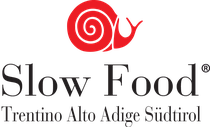“Graukäse” cheese
Ahrntal Graukäse (Ahrntal Valley grey cheese) is a member of the acid curd cheese family. These cheeses are made by coagulating curdled milk without the addition of rennet and have been widespread in the Tyrolean Alps for as long as anyone can remember. The cheese’s characteristics alone bear witness to its ancient origins long before the emergence of cheese dairy technologies. Graukäse occupied an important place on the sparse list of means of subsistence available in the economically lean environment of the mountain people.
And Graukäse really is lean – perhaps even the leanest of all cheeses. So lean, that the fat content in the dry mass does not exceed 2%. The reason for this distinctive feature lies in its type and composition. The base product for making grey cheese is what is left of the milk after butter is churned.
In South Tyrol Graukäse is particularly widespread in the Ahrntal Valley and the two smaller valleys that branch off it, Mühlwald and Weissenbach.
Graukäse: renaissance in top-level South Tyrolean gastronomy
Where once the cheese made from sour skimmed milk was considered to be “poor people’s food”, these days it is enjoying a renaissance in top-level gastronomy. Slowfood even conferred a “Presidio” upon it, the highest possible distinction.

Development scheme
Over recent decades a positive invasion of farm and mountain dairy cheeses has practically driven out Graukäse. It is only still produced for home consumption on individual mountain farms or in just a few cooperative alpine dairies. The Ahrntal Graukäse Development Project aims to publicise and circulate the original production methods again. Events such as the “Ahrntal GrauKäse Days” and the “Autumn of Mountains and Cheese” aim to raise well-deserved awareness of this unique product.
Production
After all of the cream has been skimmed off, the milk sits for up to two days in containers and during this period the natural sour milk curdling process begins. Next, the mass is carefully and slowly heated up and once the whey has separated out, the curds are broken up by hand. After this, they are seasoned with salt and if desired a little pepper. The process is rounded off by putting the curds in moulds. The cheese takes between two and three weeks to mature. However, some producers leave their Graukäse to mature “cold” for up to twelve more weeks.
The progressive maturation allows natural grey and blue mould to grow. It has no rind, a marbled body with a graduated light, chalky-white centre, which may become yellowy and sometimes waxy. Its aroma is pervasive due to the acidic and fermentative components. A bitter taste dominates the flavour, which becomes ever more striking as the cheese becomes increasingly mature. This depends on how much whey the cheesemaker leaves in the mass at the time that the curds are placed in the mould.